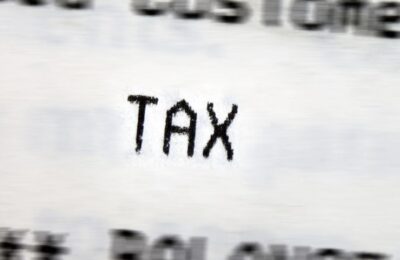If you are setting up a new business then one of the things you will need to consider before you start is the best business structure to use.
We are often asked to advise clients whether it’s more advantageous for them to set up their new businesses as a sole trader or limited company.
There are two basic choices:
- Be self-employed, or
- Incorporate your business and trade as a limited company.
There is a world of difference between the two options.
Self-employed
Self-employed suggests that you work on your own as a sole trader and this is certainly one option but not always the best one.
You could have a business partner or partners and trade as self-employed but in a formal partnership arrangement.
Before you decide to take this route, you should be aware that there are two basic types of partnership:-
- A Limited Partnership (where the partners are not personally liable for any business debts)
- A Standard or Non-Limited Partnership where the partners’ personal assets are at risk in the event that the business cannot pay its debts.
This personal liability aspect is one of the key aspects which need to be considered when deciding on a structure for your new business.
The other is the impact of National Insurance (NI) and Tax.
If you are self-employed and trading on your own as a sole trader or as a partnership, the profits of the business are taxable based on the tax status of the business owner or owners.
There is no flat rate applied to business profits as would be the case if your business was set up as a Limited Company in which case the profits would be subject to Corporation Tax.
So the more you earn, the more NI and Income Tax you will pay.
Once you hit the £50,000 mark any profits above that figure will be taxed at the higher rate of 40%. By way of comparison, the Corporation Tax rate which applied to profits from Limited Companies is currently between 19% and 25% depending on the amounts of profits made.
And don’t forget, if you are self-employed and you run into financial difficulties, your personal assets may be at risk – unless you have opted for the Limited Liability Partnership arrangement.
A Limited Company
Alternatively, you could set up a limited company that is treated as a legal entity in its own right. Companies pay Corporation Tax on their profits, not Income Tax.
At first sight it may seem like a no-brainer, why would you be self-employed and pay much higher rates of NI and Income Tax? Combine this with the limited liability aspect and the argument for trading as a Limited Company seems compelling.
Of course it’s not that simple as there are other matters to consider which could swing the argument the other way.
Any profits withdrawn from the company as salary will be subject to Tax and NI anyway and the costs of administering a Limited Company are usually higher.
The decision will often depend on how high the profits are likely to be and how much you, as the owner, will need to withdraw from it to live on. Also how much risk you wish to take on.
The risk argument is fairly straight forward.
If the trade or service you provide involves risk, and a risk that it is difficult to fully insure against, then the limited company is the better route. The only assets at risk will be those owned by your company. Provide you don’t do anything illegal then your personal assets will be safeguarded should the business fail.
If there is no significant risk, the next criteria to look at is taxation.
Which route will generate the lower tax and NIC bill whilst still providing you with sufficient take-home pay?
In situations where taxable business profits remain fairly low, up to say £20,000, it is usually more sensible to structure your affairs as a sole trader, as any perceived tax benefit will likely be offset by the increased costs involved in setting up and running a limited company.
Above that, where profits are say between £20,000 and £200,000, you will generally be in a position to save tax and NIC by trading as a limited company but when profits exceed around £200,000 the table turns back and you may be better off as a sole trader.
However, these assumptions would only be valid if you were to choose to withdraw all your profits from your business. Most businesses will grow to the point where an ever increasing percentage of the profits are retained in the business which is another big factor in deciding how best to structure your business.
There are a number of other factors to consider though when looking at this question, so if you are contemplating a new business venture and you are unsure what structure you should choose, please call so we can look at all the options and advise you on the best way to go.
Planning is key when considering the best business structure to use
Every potential new business-person should look at both options. There are pluses and minuses to each and both need to be considered.
At THP, our team are continually being asked this question and have decades of experience in answering it!
Come and see us at one of our offices in Chelmsford, Sutton, Wanstead and Saffron Walden or give us a call to see how we can help.
About Mark Ingle
Owner-manager business specialist, Mark Ingle is key to building relationships with clients at the Chelmsford office. “I like to see clients enterprises grow and succeed.” Mark explains, “The team here has a lot to offer and I can see a lot of new businesses responding to that.”
Having worked for accountancy practices in London and Essex, Mark has worked with a range of companies varying in size. For Mark, THP stands out for its “local firm approach with the resources of a larger practice.”
Although a keen traveller, Mark is focused on giving his clients at THP the highest service, “Right now, I aim to help the clients we have to the best of my ability which will help me attract more of the right clients in the future.”
Mark’s specialist skills:
- Annual and Management Accounts
- Tax and VAT
- Strategy and Business Planning
- Marketing and Sales
- Business Development












